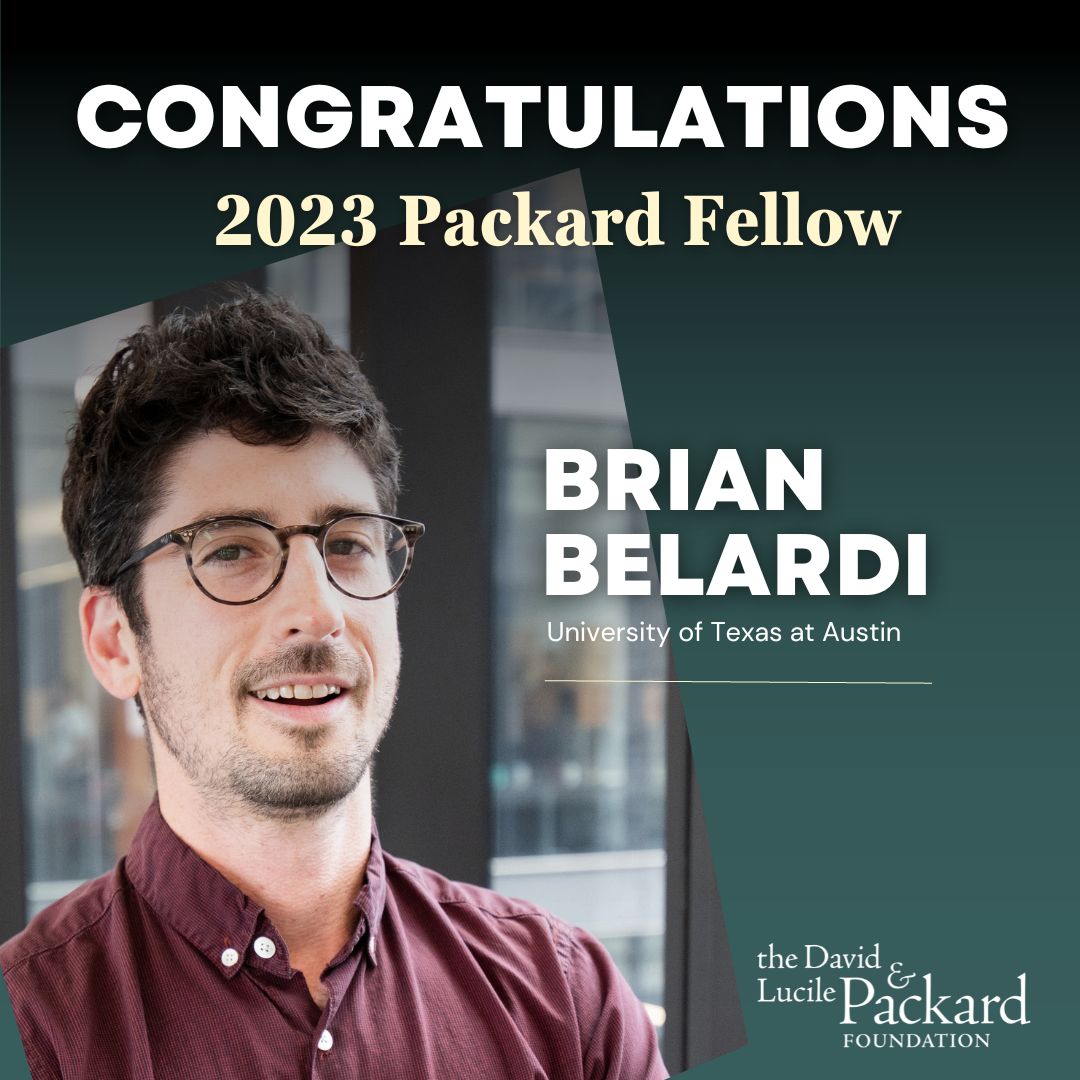Brian Belardi has been awarded the prestigious David and Lucile Packard Foundation Packard Fellowship for Science and Engineering, a high honor that recognizes the nation’s top young scientists and engineers and spurs them to take on risky, impactful projects.
Belardi, who joined The University of Texas at Austin in 2021 as an assistant professor in the Cockrell School of Engineering’s McKetta Department of Chemical Engineering, studies how cells within tissue interact, communicate, and go awry in diseased or damaged organs. Understanding the molecular underpinnings of cell adhesions that drive everything from organ building to maintaining physiological homeostasis is key to developing new technologies to manipulate and harness their structure for therapeutic benefit.

“I’m honored to join the Packard Fellows community,” Belardi said. “This award is a testament to my collaborators and former mentors for encouraging me to blur the lines between disciplines and imagine a brighter future, as well as my current lab members for helping make ambitious ideas a reality. Support from the Packard Foundation will allow us to look deep into our organs on a molecular level and push the boundaries of tissue engineering in the coming years, and for that we are deeply grateful.”
Named for Hewlett-Packard co-founder David Packard, the Packard Fellowships for Science and Engineering encourage “blue-sky thinking” by providing maximum flexibility through funds that can be used in any way the Fellows choose, including paying for necessities like child care. This flexibility allows Fellows to take risks and pursue trailblazing research, which has led to critical advancements that impact our daily lives from detecting viruses and improving our public health response to outbreaks, to gene-editing technology that is affecting how we tackle diseases, to understanding our changing climate and how animals and ecosystems will adapt.
“The Packard Fellowship encourages its recipients to take bold risks in pursuit of world-changing research,” said Roger Bonnecaze, dean of the Cockrell School of Engineering and a Packard Fellow in 1994. “Congratulations to Brian; I’m excited to see how this honor takes his research to the next level here at the Cockrell School.”
Each year, the Foundation invites the presidents of 50 universities to nominate two early-career professors each from their institutions. Disciplines that are considered include physics, chemistry, mathematics, biology, astronomy, computer science, earth science, ocean science, and all branches of engineering.
The 35th Anniversary class features 20 innovative early-career scientists and engineers, who will each receive $875,000 over five years to pursue their research. Belardi’s fellow Fellows are exploring new frontiers in their fields of study, such as how animals make decisions in the face of environmental changes, how brain-body interactions work, and how bird flight can be used to improve aircraft design.
“From the nanoscale to the scale of the galaxies, the 2023 class of Fellows are making ground-breaking discoveries, conducting critical research, and leaving a lasting impact on the scientific community and our world,” said Jason Burnett, Packard Foundation board chair. “Their ability to strive for the impossible is a contagious source of hope for those looking to change the field of science and will serve as inspiration for the next generation of researchers.”
